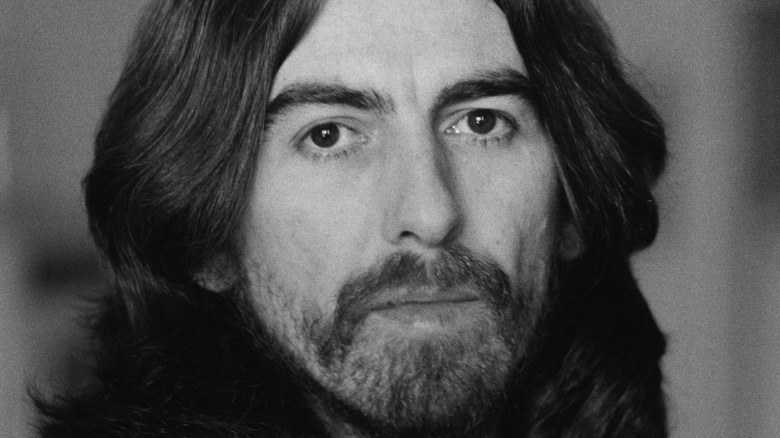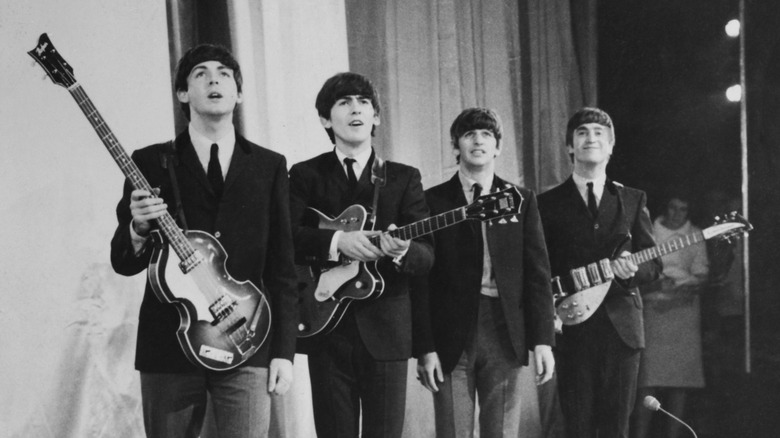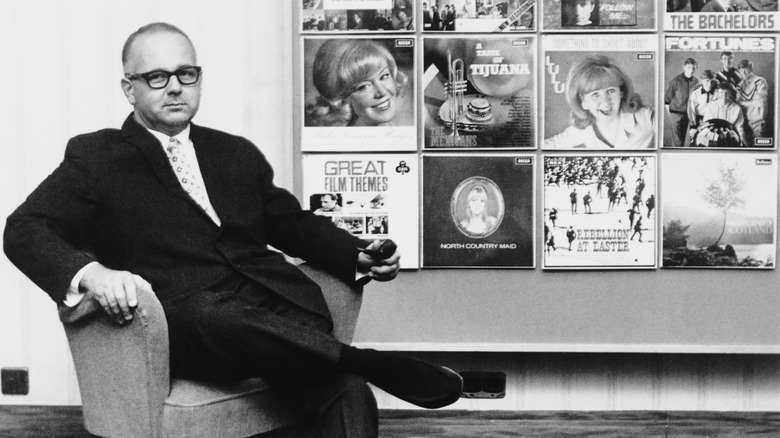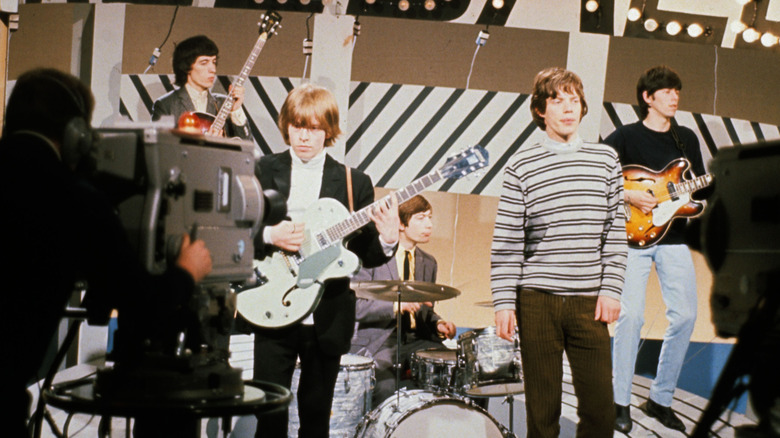How George Harrison Helped The Beatles' Rivals Get Signed To A Record Deal
Forget the Grammys. The biggest honor in the world of music is getting the stamp of approval from a Beatle. Sure, you can't necessarily stick that on your mantle, but a thumbs-up over the years from any combination of John, Paul, George, and/or Ringo often meant that your musical career was trending in the right direction. Their word was in fact so powerful that it carried a ton of weight even outside of the music biz.
They were also ready to help out those they were fans of. According to Rolling Stone, after lending his talents to the Beatles' hit "Get Back," the band signed pianist Billy Preston to their label, Apple Records, and he released " That's the Way God Planned It," with George Harrison producing, Ginger Baker from Cream handling the drums, and Rolling Stones guitarist Keith Richards also appearing on the record.
Speaking of the Rolling Stones, while they're often considered rivals of the Beatles, they were pretty friendly with the Fab Four. John Lennon made an appearance in the Rolling Stones' "Rock And Roll Circus" television event in 1968, per Classic Rock. However, the Rolling Stones may have never had their own special had they not gotten the George Harrison stamp of approval several years earlier.
Dick Rowe and Decca reject the Beatles
Dick Rowe has an unfortunate place in Beatles history, known to music fans and historians as the man who rejected the Beatles. Rowe was an executive for Decca Records, according to The Independent, and he was responsible for identifying new talent. Rowe was the man who, in 1962, (now infamously) told Beatles manager Brian Epstein that "guitar groups are on the way out." However, while Rowe was the bearer of bad news, he wasn't the one that made one of the most regrettable decisions in music history, as it was actually made by a Decca executive named Mike Smith who turned the Beatles down after their 15-song audition, opting to instead sign Brian Poole and the Tremeloes. Ever heard of them? Exactly.
Still, Rowe's place in Beatles lore was set in stone. And fortunately for him, he had an opportunity for some degree of redemption, thanks to one of the very Beatles he initially shot down.
Dick Rowe's redemption
According to The Independent, Dick Rowe's letter of rejection to the Beatles was dated February 10, 1962. That's early enough in the band's history that Pete Best was still their drummer, as Ringo Starr only joined later that year, per The Times. It was clear that the decision was a blunder just over a year later when the Beatles released their debut album "Please Please Me" and Beatlemania was underway.
Not long after the release of "Please Please Me" George Harrison was judging a talent contest in which bands from the Fab Four's old stomping grounds around Liverpool vied to be the next Beatles. Sitting alongside him as a fellow judge just happened to be Dick Rowe (via Far Out). Apparently neither one of them was too impressed with the bands on hand that day and they started talking about what they were seeing. Harrison told Rowe that none of the bands there that day could even share a stage with a great bluesy-rock band he had seen recently: the Rolling Stones.
Decca signs the Stones
According to Far Out, Rowe, never wanting to miss out on a good opportunity — or maybe just not wanting to be the guy who rejected both the Beatles and the Rolling Stones — started planning how he was going to bring the Stones to Decca before the talent show was even over. "I pushed my chair back, and I basically ran to my car and got myself down to Richmond to make sure I was there for that Rolling Stones gig," Rowe later recalled.
According to Ultimate Classic Rock, Rowe caught the band at London's Crawdaddy Club and had them signed to Decca just days later. Fortunately for Rowe's reputation, this was a fantastic call, and this was readily apparent to everyone. Journalist Don Nicholl wrote in the music newspaper called Disc, that he thought the Beatles may eventually regret tipping Rowe and Decca off to the Rolling Stones, as they "could be challenging them for top places in the immediate future."



